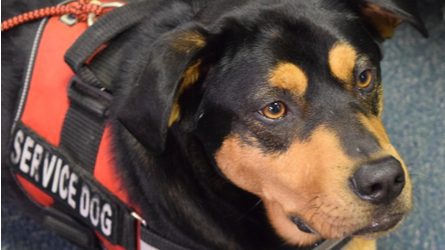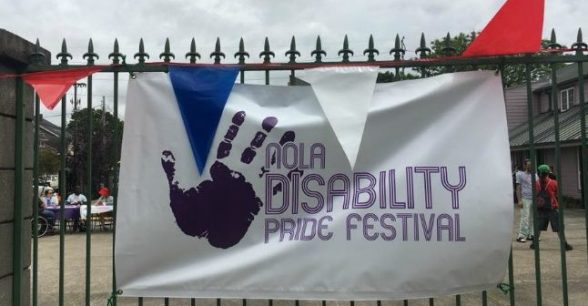Dealing with Medical Ableism
I have a tracheostomy and use a ventilator to breathe at night. It works well for me, and I have no regrets, but every couple of years, I wind up in the hospital with some kind of upper respiratory infection. As Congress tinkers with health insurance like a Jenga player on six espressos, a recent stay in the hospital for a nasty but manageable bronchitis led me to think about the various awkward personal experiences of actual health care when you’re disabled.
Most of us can remember times when a doctor or nurse acted like they didn’t believe us. Sideways looks and prying, investigative questions often suggest that the medical profession regards patients with disabilities as vaguely compromised.
While I have never had a doctor or nurse directly doubt or contradict me, medical professionals often talk to my family or friends instead of me to gather information when I’m sitting right there. That’s why I prefer to meet with my doctors alone.
Lately, this type of ableism has gotten better, with medical professionals looking to me for guidance on treatment, especially when it relates to my disabilities. In the hospital last month, I never once felt like my word, competence, or intelligence were doubted. That’s a big improvement.
Weird stuff still happens though:
- A nurse’s aide taking my blood pressure jokes, “Your arm is so thin, I could break it!”
- I ask a nurse to take my tracheostomy tube over to the sink and clean the gunk out of it. He hems and haws, finally says he’s not allowed to mess with it, and will call Respiratory to do it instead.
- A discharge planner wants to know whether I drive, if I live alone, and who helps me take care of my ventilator.
The social justice term for these is “microaggressions,” the kind of small humiliations that don’t do much harm on their own, but over time can poison even the most resilient souls. You could also call it “amateurism,” a mix of passive ableism, thoughtlessness, and inexperience.
I do find there’s a little less amateurism in hospitals now than there was, say, ten years ago. More importantly, I find I also process it differently. When that nurse’s assistant made the flip, thoughtless comment about my thin arm, it felt more surreal than offensive. But, I didn’t say anything about it.
A few years ago, I might have stayed quiet out of embarrassment or even fear. I mean, do I really want to piss off a nurse who is taking care of me … with needles and drugs and stuff?
I let it slide this time, too, but for a different reason. I knew it would be cruel to shame this quite young, probably inexperienced woman for a minor faux pas, or worse, complain to a superior who could truly make her life harder in significant ways. Essentially, I checked my privilege. Sick, weak, wired up, and disabled as I was, I had more power to make her whole week suck than she had to ruin my morning.
I did lose my cool with a different nurse who was having a hard time understanding the help I needed late one night. I yelled at him. A decade ago, in the same situation, he would have snapped back at me, turned really cold, or been crushed and wounded. Instead, he somehow managed to back off and give me some space, without making me feel abandoned. A bit later, he accepted my apology with relaxed good humor. If he took it personally, he hid it well, but I don’t think he did. That made all the difference.
Maybe that’s the key to dealing with medical ableism, especially in hospitals. Everyone relax a little. Disabled people: stick up for yourself if you’re a disabled patient, but don’t assume you’re the always the most oppressed person in the room. Medical professionals: listen to disabled patients and try believing what they say. And we might all do well to take those inevitable awkward moments a little less personally.
About Rooted In Rights
Rooted in Rights exists to amplify the perspectives of the disability community. Blog posts and storyteller videos that we publish and content we re-share on social media do not necessarily reflect the opinions or values of Rooted in Rights nor indicate an endorsement of a program or service by Rooted in Rights. We respect and aim to reflect the diversity of opinions and experiences of the disability community. Rooted in Rights seeks to highlight discussions, not direct them. Learn more about Rooted In Rights



